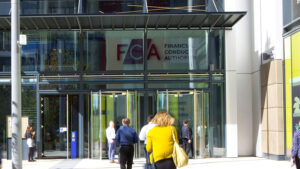Nick Train has said the disruption caused by the coronavirus could provide a boost for one of the biggest laggards in his Finsbury Growth & Income trust, Pearson.
The academic publisher has been one of the trust’s biggest detractors from performance and a constant source of embarrassment for Train who has been waiting patiently for the business to turn itself around. Shares in Pearson are trading at a fraction of their peak price of £20.72 a share in 2000 as demand for physical textbooks has plummeted.
But the firm has been heavily investing in building a digital platform with online learning resources which Train thinks could provide a boon for business as the coronavirus forces school closures.
“Pearson is holding up well as a share price, because investors see the possibility of an acceleration in online learning (and student registrations, that tend to go up during a recession),” he said in a letter to shareholders. Shares in the company have fallen 14% in the last month to 504p.
Similarly Train said the coronavirus outbreak could also provide a tailwind for hygiene product manufacturer PZ Cussons, one of his newest additions to the trust. “Sales of Carex [its hand sanitiser], at least, will be going gangbusters.” Its shares are down 12% in a month at 176p.
Train’s biggest holdings down over 25%
Pearson and PZ Cussons’ share price losses pale in comparison to some of Train’s biggest holdings.
Since the market peak on 20 February most of Finsbury Growth & Income’s top 10 holdings, which make up 83.8% of the trust’s net asset value, have seen their share prices plunge by 25% or more.
Luxury designer Burberry has been hit the worst, with shares now trading 39% lower. Dove soap maker Unilever and D2C platform Hargreaves Lansdown have weathered the storm the best out of Train’s biggest investments, though they are still down 9% and 13% respectively.
Train has been buying back shares in Finsbury Growth & Income trust in recent days and weeks which he told shareholders was “the right thing to do – however painful.” The £1.4bn trust has also seen its shares lose a quarter of their value.
Finsbury Growth & Income top 10 holdings
| NAV % | Share price during biggest coronavirus drawdown | |
| London Stock Exchange
|
12.0
|
-31% |
| Relx | 10.8 | -25% |
| Unilever | 9.7 | -9% |
| Diageo | 9.4 | -24% |
| Mondelez | 9.1 | -23% |
| Schroders | 7.7 | -31% |
| Burberry | 7.1 | -39% |
| Sage Group | 6.4 | -27% |
| Hargreaves Lansdown | 6.4 | -13% |
| Heineken | 5.3 | -28% |
Source: Finsbury Growth & Income factsheet as at 29 February 2020; share prices calculated between 20 February 2020 to 20 March 2020
Rémy Cointreau and Manchester United most at risk
Of his investments Train highlighted French spirits maker Rémy Cointreau and football club Manchester United as being “more exposed to an economic downturn” and noted they have “some but not excessive debt”.
Over the biggest coronavirus drawdown period Manchester United shares have fallen 30%, while Rémy Cointreau’s are down modestly at 5%.
He also cautioned that revenues for the asset managers in the portfolio like Schroders and Rathbones would likely be lower temporarily. But he added these companies are “financially secure” and would benefit from having diverse product lines. “Remember they are not only invested in equities – bond and multi-asset portfolios will be providing protection.”
Train doubles down on buy and hold strategy amid coronavirus crisis
Train told shareholders he was hopeful “our long-term strategy of focusing our portfolios on strong companies is going to see us through this crisis”.
Nine of his 24 portfolio holdings, including AG Barr, Burberry, the Daily Mail, Hargreaves Lansdown and Schroders are net cash, he said, while holdings like booze brands Diageo, Heineken and Fullers/Youngs as well as Relx and London Stock Exchange “are all very strong businesses/and or lowly geared”. Sage has recently initiated a share buyback programme because it believes it is too lowly geared, he said.
“We must hold on to and even add to companies that will do well once we get through to the far side of this,” he said.







